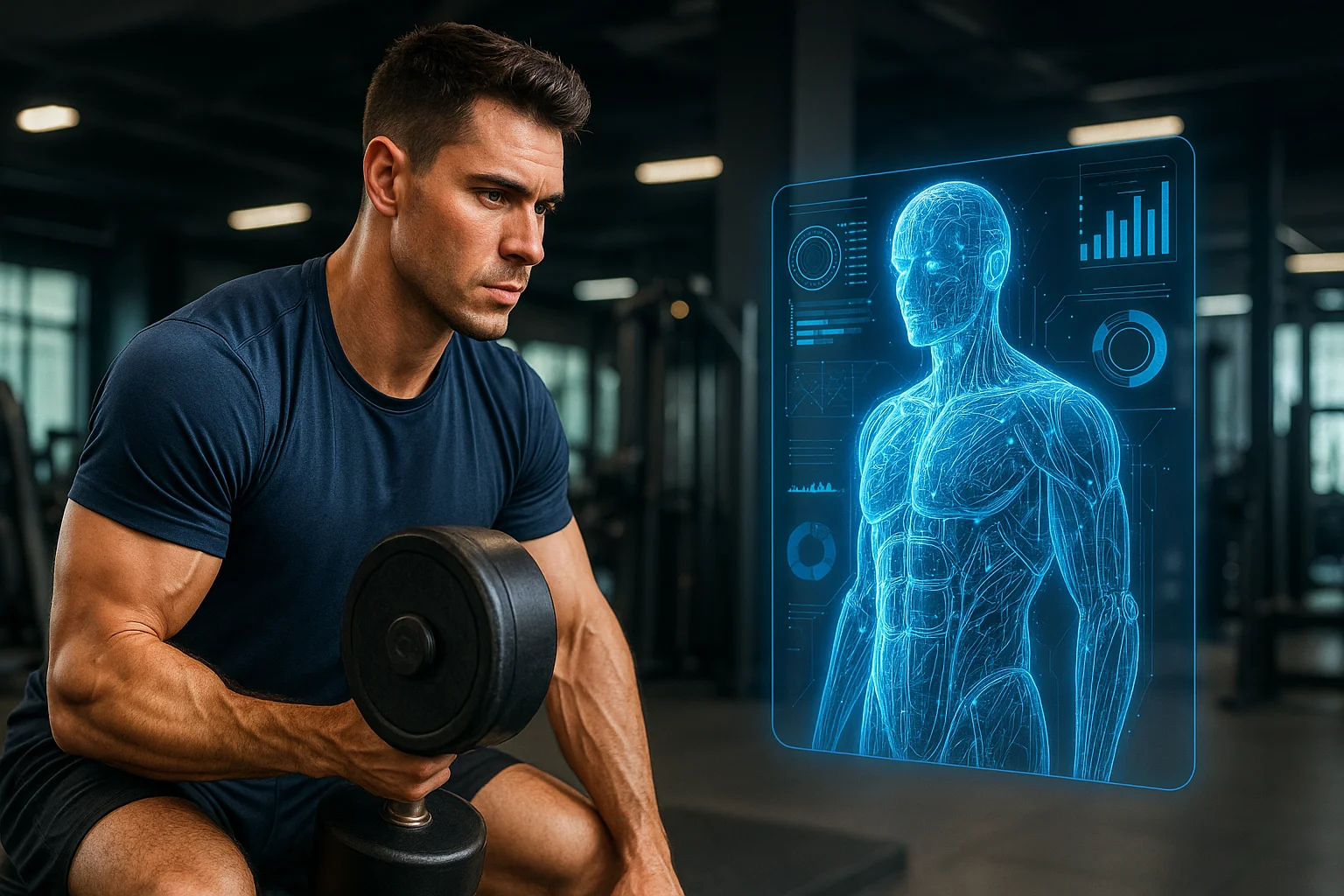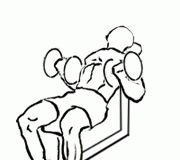Last Updated on June 3, 2025
Is the Perfect Workout Plan Hidden in Your DNA?
If you’ve ever wondered why some people bulk up faster, while others struggle despite hitting the gym consistently—you’re not alone. The truth is, genetics play a major role in how your body responds to exercise. But what if artificial intelligence (AI) could analyze your genetic profile and design the perfect workout split just for you?
We’re entering a new era in fitness where AI and DNA testing are teaming up. The promise? Hyper-personalized workout routines tailored not just to your goals, but to your unique biological makeup.
Let’s unpack how AI is making this happen—and whether it’s really possible to engineer the perfect workout split using your genetics.
What Is a Workout Split—and Why It Matters
Before we dive into AI and genetics, let’s cover the basics.
A workout split is how you divide your training across the week. Common splits include:
- Push/Pull/Legs
- Upper/Lower
- Body-Part Splits (Bro Split)
- Full Body Workouts
Choosing the right split affects how fast you build muscle, burn fat, and recover. But no one-size-fits-all plan works for everyone. That’s where personalized fitness powered by AI comes in.
The Genetic Factor: Why Your DNA Matters in Fitness
Your genes influence several fitness-related factors, such as:
- Muscle fiber composition (fast-twitch vs slow-twitch)
- Recovery rate
- Tendency to store fat
- VO2 max potential
- Risk of injury
- Cortisol and stress response
DNA testing companies like 23andMe and DNAfit offer insights into these traits. But interpreting that data and turning it into an actionable workout plan? That’s where AI steps in.
How AI Uses Genetics to Build Custom Workout Splits
Here’s how the process typically works:
- Genetic Testing – You submit a saliva sample to a genetic testing provider.
- Data Analysis – Your raw genetic data is uploaded to a fitness-AI platform.
- AI Algorithms – These platforms use machine learning models to cross-reference your genetic markers with databases of fitness research.
- Workout Optimization – The AI generates a custom workout split based on your muscle type, recovery ability, hormone levels, and goals.
Some AI-powered fitness platforms also track your progress and adjust your split over time, creating a feedback loop for continuous improvement.
Real-World Examples of AI + Genetics in Fitness
1. FitnessGenes
They combine genetic analysis with AI to suggest training and nutrition plans tailored to your DNA. For example, if you have a gene variant that indicates slower recovery, the AI may recommend more rest days or a lower training frequency.
2. TrainAsONE
This platform uses AI to create dynamic running plans, adjusting based on performance data, heart rate, and even stress levels.
3. Wild Health
They take it further by combining genetics, biomarkers, lifestyle habits, and AI to provide holistic health and fitness plans—including custom workout splits.
Can AI Truly Nail the “Perfect” Workout Plan?
The Pros:
- Highly personalized: Your plan is based on real biological data.
- Adaptable: AI can update routines as your body and goals evolve.
- Data-driven: AI pulls from massive datasets that no human coach could process alone.
- Efficient: No more guesswork—only what’s likely to work for your body.
The Limitations:
- Genetics ≠ Destiny: Your genes are just one piece of the puzzle. Lifestyle, sleep, nutrition, and mindset still matter more.
- Limited research: The fitness-genetics field is still growing. Some gene interpretations may be speculative.
- Cost: DNA tests + AI subscriptions can be expensive.
- Over-reliance on tech: AI can miss the “human touch” that experienced trainers bring.
What About Non-Genetic AI Training Apps?
Even without genetic data, AI tools like Fitbod, Freeletics, and Jefit analyze your performance, goals, and recovery to recommend optimized workout splits. While not gene-based, they still provide a level of personalization that beats generic plans.
How to Get Started With AI-Based Fitness and Genetic Testing
- Choose a genetic testing provider – Look for one that allows raw data downloads (e.g., 23andMe).
- Select a fitness-AI platform – Pick one that integrates with your genetic data.
- Set your goals clearly – Muscle gain? Fat loss? Endurance?
- Start small – Let AI create a plan, but keep evaluating how your body feels and responds.
- Use wearables – Devices like Fitbit, Garmin, or Apple Watch can give AI even more data to refine your workouts.
So, Can AI Build the Perfect Workout Split Based on Your Genetics?
Yes—and no.
AI can create a highly personalized, data-backed starting point. It can uncover insights your trainer might miss. But “perfect” is a moving target. Your goals evolve. Your lifestyle changes. And your body adapts.
The real power lies in combining your genetic blueprint with real-world feedback, smart tracking, and yes—a little human intuition.
So go ahead, leverage AI. Let it crunch the data and build the blueprint. But remember: you’re still the architect.
Final Thoughts: The Future of Fitness Is Personalized
As AI and genetic science mature, the era of one-size-fits-all training is ending. If you want to train smarter—not harder—AI can be your secret weapon.
Will it magically unlock the “perfect” workout split? Maybe not 100%. But it’ll get you closer than ever.
Ready to find out what your DNA says about your fitness? The future of your training might already be coded inside you.

Frequently Asked Questions (FAQ)
Can AI really customize a workout plan based on my DNA?
Yes. AI can analyze your genetic data to recommend training plans tailored to traits like muscle fiber composition, recovery speed, and injury risk. While it’s not perfect, it offers a more customized approach than generic routines.
Do I need a genetic test to use AI workout apps?
Not necessarily. Many AI fitness apps like Fitbod or Freeletics create smart workout plans without DNA data. However, if you want a plan based on your genetics, you’ll need a DNA test from a service that allows raw data exports.
Which AI fitness apps use genetic data?
Apps like FitnessGenes, Wild Health, and DNAfit use your DNA profile to personalize your workout splits, nutrition plans, and recovery strategies.
Is it safe to trust AI with my fitness routine?
Yes, if you’re using reputable platforms. AI provides data-driven suggestions, but you should always listen to your body and consult a fitness or medical professional if needed—especially if you have preexisting conditions.
How accurate are genetic fitness predictions?
Genetic insights can highlight tendencies (e.g., fast vs slow recovery), but they aren’t definitive. Your lifestyle, habits, and consistency still play a much bigger role in your fitness results.
What’s better—AI or a personal trainer?
AI offers convenience, data analysis, and personalization at scale. A personal trainer adds human intuition, form correction, and motivation. The best results often come from combining both.







